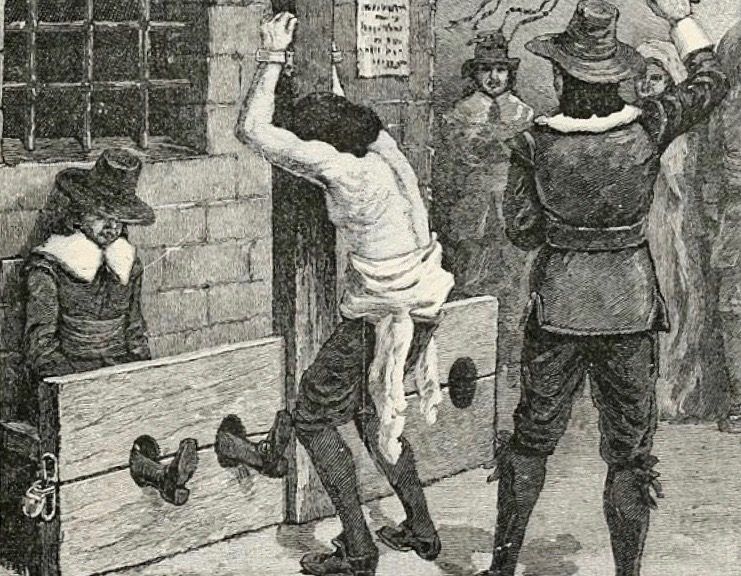The Crime of Being Quaker
In Massachusetts, being a Quaker was not just frowned upon—it was illegal. Puritans despised Quakers for reasons of theology (they heretically believed they could have a direct relationship with God), power (they refused to pay taxes to support Congregational Church), and man- ners (the zealous Quakers sometimes interrupted church services and banged pots and pans in the streets). The punishment for being a Quaker was whipping on the first offense, having an ear cut off after the second, and execution…
